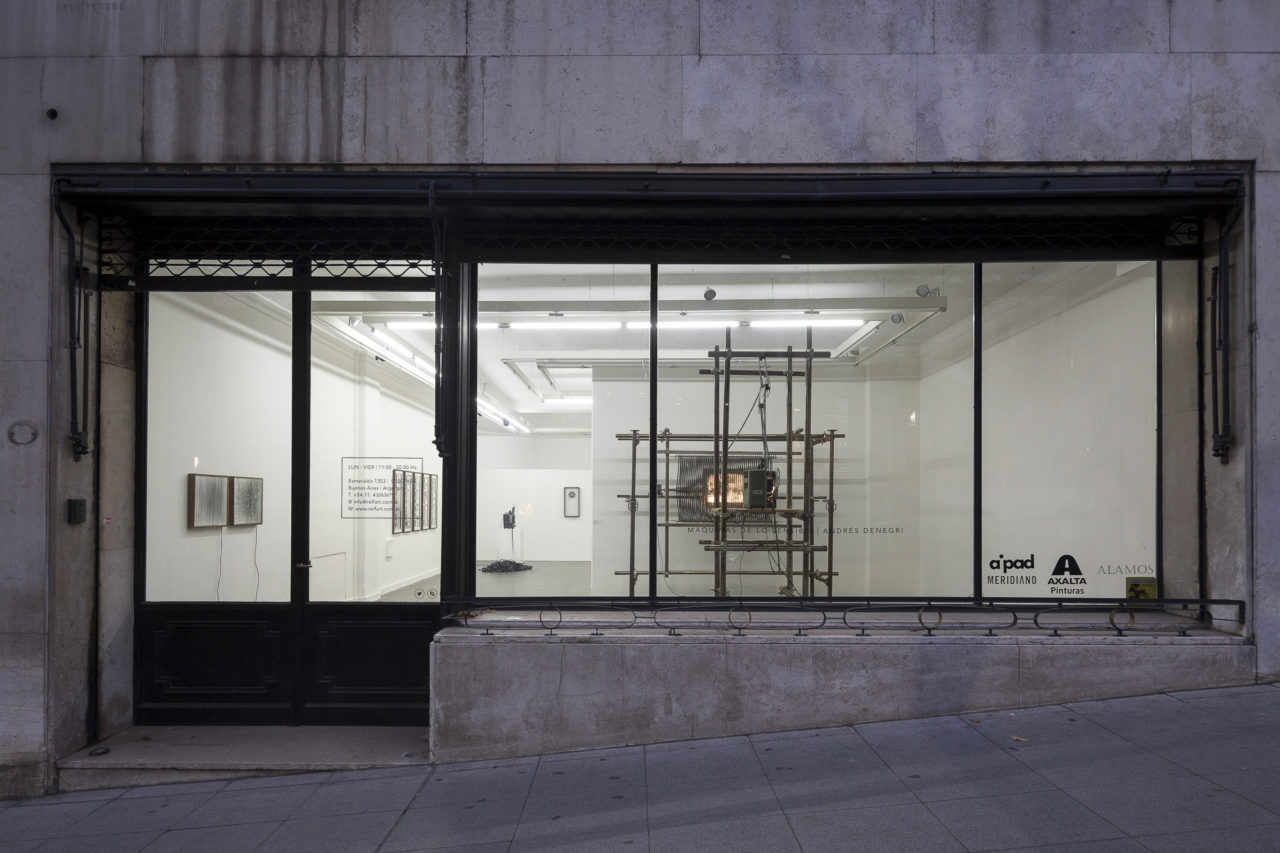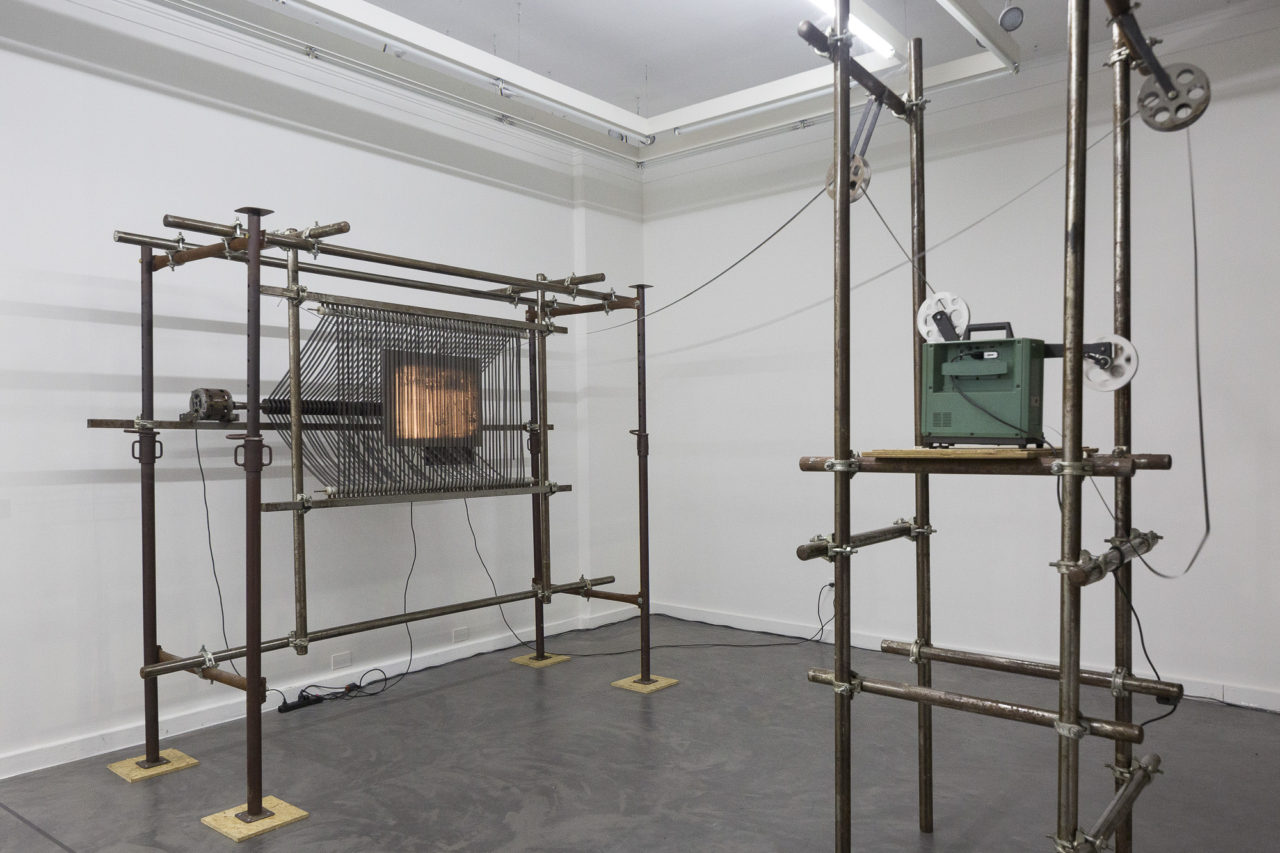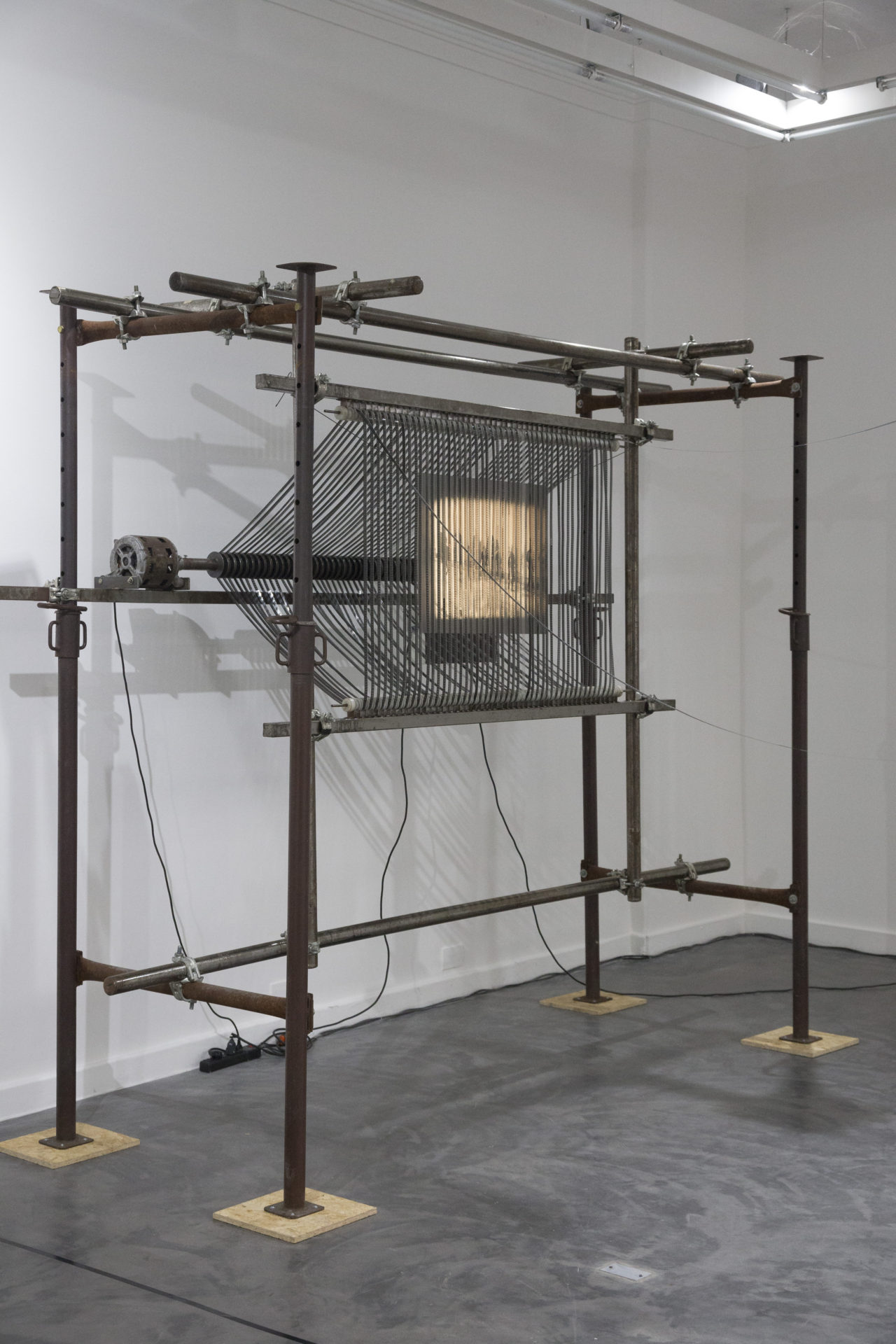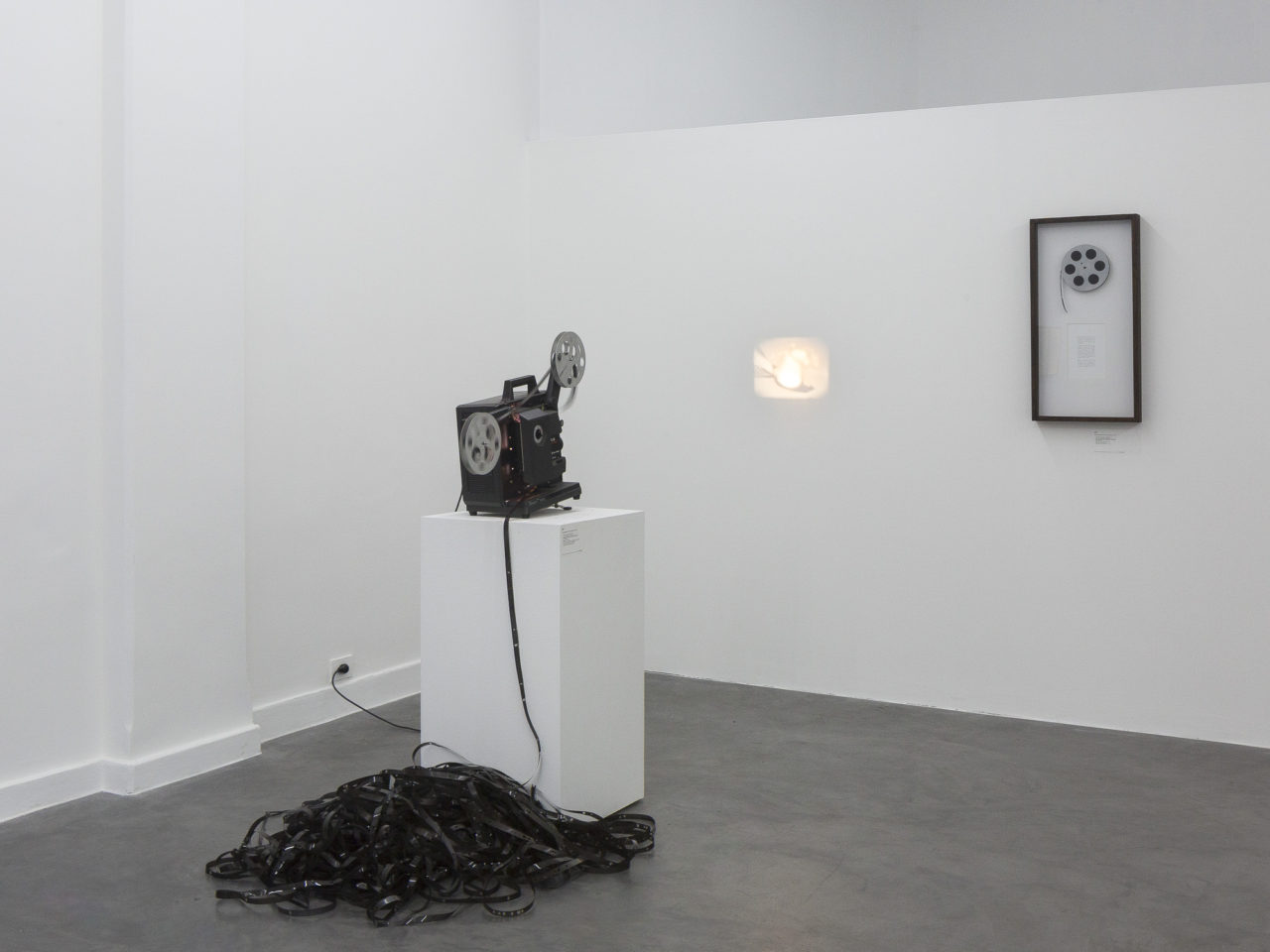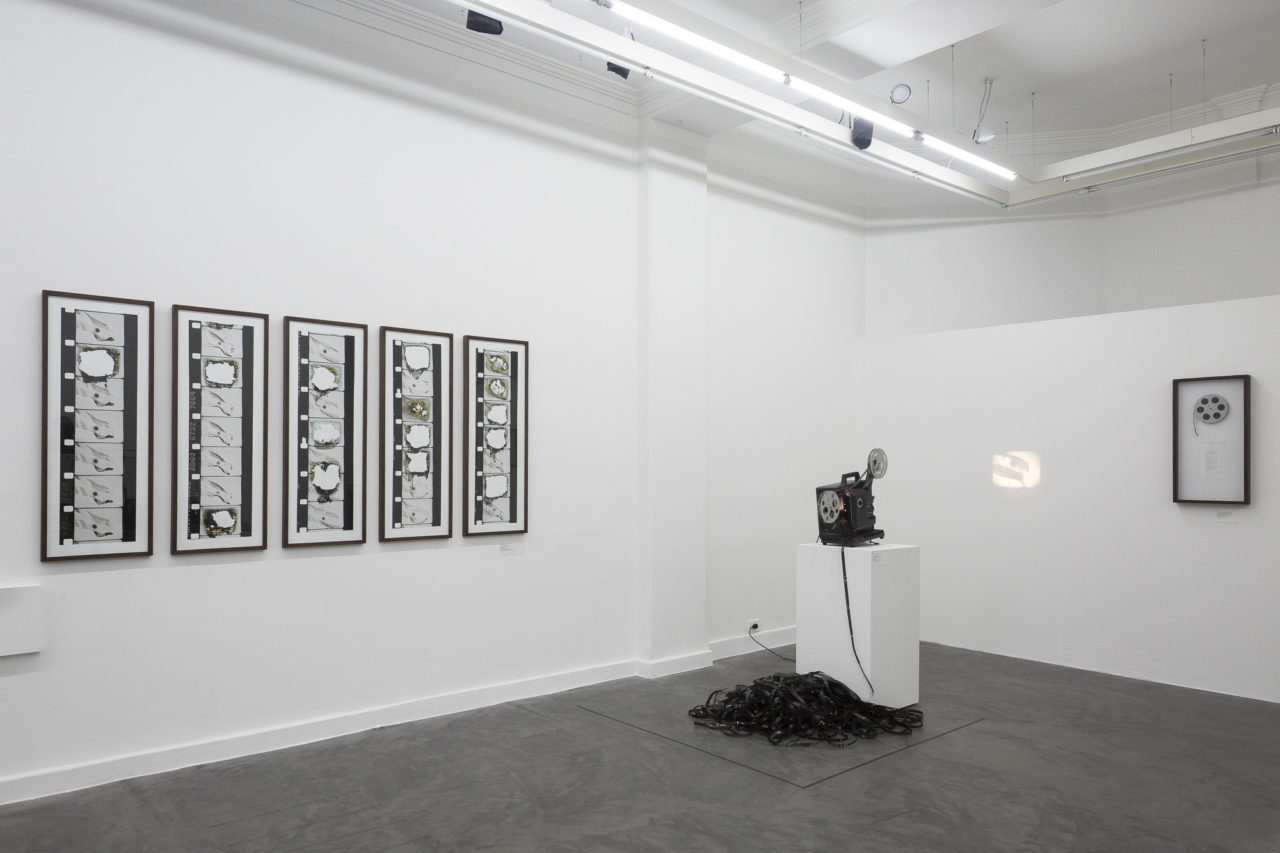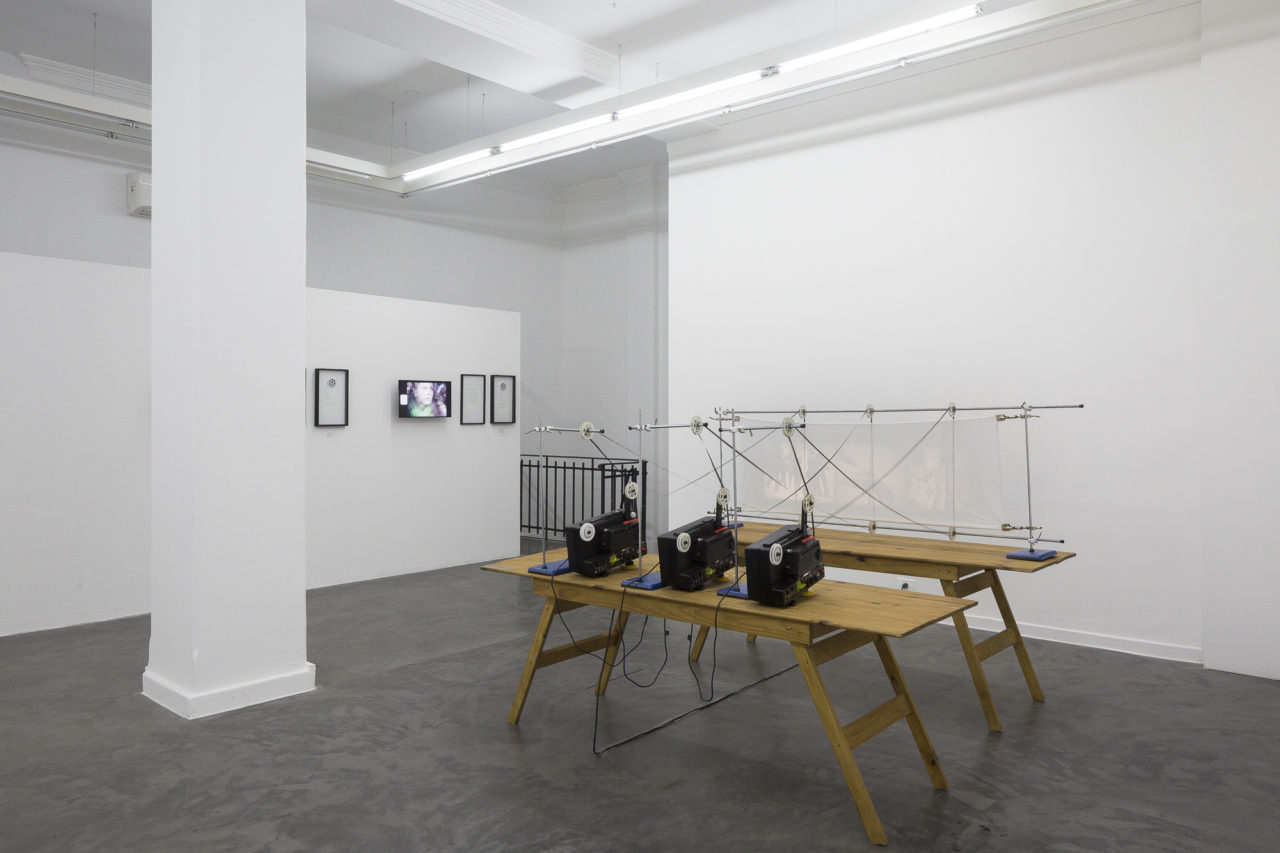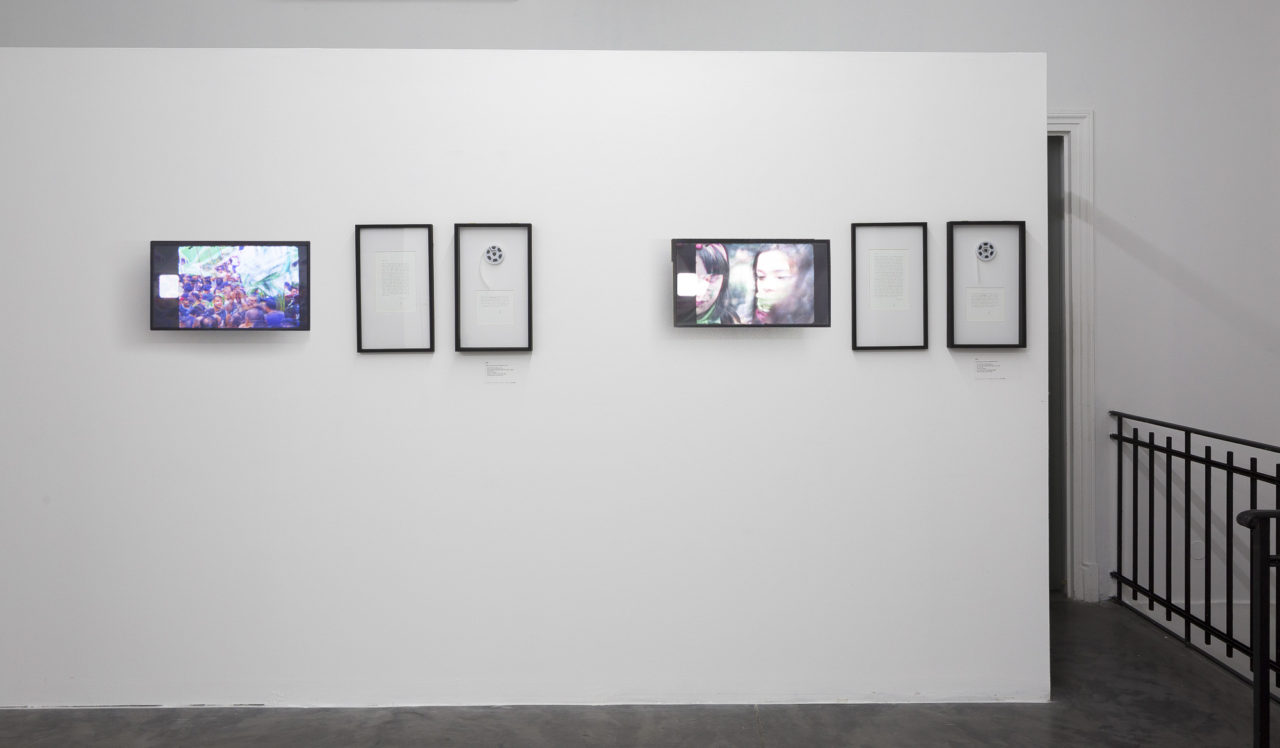SENSITIVE MACHINES | BY ANDRÉS DENEGRI
After featuring his Solo Show at Paris Photo 2019 alongside Pabellón 4, Rolf Art is pleased to announce the incorporation of Andrés Denegri to the gallery ́s roster of represented artists, opening his individual show, Sensitive Machines. It will take place on December 13, 2019 from 7pm, at Esmeralda 1353, Buenos Aires, Argentina.
Sensitive Machines, proposes a revisit through different bodies of Andrés Denegri ́s work, in his 20 years of research in the field of audiovisual arts and experimental film, focusing on the scope and extent of his practice that, from a noticeable cinematographic formation has turned towards an expressive process of multiple supports that include: film experimentation, video, photography, computer resources and the crossing with visual arts; following a course that has crossed the wide range of audiovisual techniques, moving from single-channel pieces to the art of installation.
This exhibition seeks to highlight this cross between visual art expressions (installation, sculpture) and contemporary audiovisuals (expanded cinema, experimental film), through a complex of home movie format film installations, which highlight the craft trade, the film machinery and the electro/mechanical/photochemical -conformed mainly by the Super 8 and 16mm projectors- that the artist operates in the image production process. The film projectors that compose the works have alterations in their traditional use, and this is due to the fact that part of their form and operation system have been modified. Universal supports and film drag systems, result in Projesculptures. They allow the film to circulate through space, while allowing the film to be projected on different surfaces.
The recovery and manipulation of the cinematographic apparatus, plus the appropriation and recovery of film files, its new digital register and the return to the photochemical support, are mixed and culminated in the film projection and in the exhibition of its machinery in the form of installation. The deployment of the apparatus, the running of the film, the auger, the beam of light that comes out of the projectors and the resulting image is a process of combinatorial between media.
The projected images come from historical archives that testify to the birth of a nation and an ideal country in the process of being realized, as are testimonies of the beginnings of film making in the country. Archives of conflicts and protests of Argentine history of the last century that are assimilated by concept to the image of the national symbol.
The exhibition is presented as a staging that reveals itself in its processes and languages, discovering how the moving image and the logic of the film machine are constructed, and expanding in an unprecedented way the sensory, narrative and experimental field proposed by the work of Andrés Denegri.
The exhibition, free of charge, can be visited from Monday to Friday from 11 a.m. to 8 p.m. until March 6, 2020.
 Download Press release
Download Press release
MÁQUINAS DE LO SENSIBLE | ANDRÉS DENEGRI
Luego de su presentación en Paris Photo 2019 en conjunto con Pabellón 4, Rolf Art se complace en anunciar la incorporación de Andrés Denegri al staff de artistas representados por la galería, inaugurando su muestra individual, Máquinas de lo sensible. La misma tendrá lugar el día 13 de diciembre de 2019 a partir de las 7pm, en Esmeralda 1353, Buenos Aires, Argentina.
Máquinas de lo sensible, propone un recorrido y revisita por distintos cuerpos de la obra del artista Andrés Denegri, en sus 20 años de investigación en el campo de las artes audiovisuales y del cine experimental, haciendo foco en el alcance y extensión de su práctica que, desde una marcada formación cinematográfica se ha volcado hacia un proceso expresivo de múltiples soportes que incluyen la experimentación con fílmico, el video, la fotografía, los recursos informáticos y el cruce con las artes visuales; siguiendo un derrotero que ha atravesado el amplio abanico de las técnicas audiovisuales, pasando de las piezas monocanales al arte de la instalación.
Esta exhibición busca poner en evidencia este cruce entre expresiones propias de las artes visuales (instalación, escultura) y del audiovisual contemporáneo (cine expandido, cine experimental), a través de un complejo de instalaciones fílmicas de paso reducido, que destacan el oficio artesanal, la maquinaria fílmica y lo electro/mecánico/ fotoquímico -conformado principalmente por proyectores de Super 8 y de 16 mm asociado al home movie- que el artista opera en el proceso de producción de la imagen. Los proyectores fílmicos que componen las obras presentan alteraciones en su uso tradicional, y esto se debe a que se ha modificado parte de sus formas y su funcionamiento. Soportes universales y sistemas de arrastre de películas, se devienen en proyesculturas. Ellos permiten que la película circule por el espacio, a la vez que posibilitan que el fílmico se proyecte sobre distintas superficies.
La recuperación y manipulación del aparato cinematográfico, más la apropiación y recuperación de archivos fílmicos, su nuevo registro digital y el retorno al soporte fotoquímico, se mezclan y culminan en la proyección fílmica y en la exhibición de su maquinaria en forma de instalación. El despliegue del aparato, el correr de la película, el sinfín, el haz de luz que sale de los proyectores y la imagen resultante es un proceso de combinatoria entre medios.
Las imágenes proyectadas provienen de archivos históricos que testimonian el nacimiento de una nación y un ideal de país en vías de concretarse, al igual que son testimonios de los inicios de las filmaciones de cine en el país. Archivos de conflictos y protestas de la historia argentina del siglo pasado que se asimilan por concepto a la imagen del símbolo patrio.
La muestra se presenta como una puesta en escena que se revela a sí misma en sus procesos y lenguajes, descubriendo como se construyen la imagen en movimiento y la lógica de la máquina fílmica, y expandiendo de forma inédita el campo sensorial, narrativo y experimental propuesto por la obra de Andrés Denegri.
La muestra, de entrada libre y gratuita, podrá visitarse de lunes a viernes de 11 a 20 hs hasta el 6 de marzo de 2020.
 Descargar Gacetilla de Prensa
Descargar Gacetilla de Prensa
